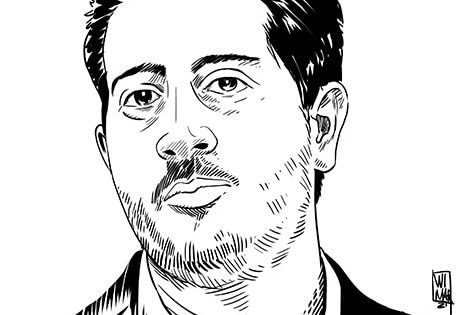(RSF/IFEX) – RSF has said that it will hold the Cuban government responsible for imprisoned journalist Normando Hernández González’s health situation. The journalist is believed to have contracted tuberculosis in prison. “We call on the Cuban authorities to give him all the treatment he needs in order to recover quickly,” the organisation said, while adding […]
(RSF/IFEX) – RSF has said that it will hold the Cuban government responsible for imprisoned journalist Normando Hernández González’s health situation. The journalist is believed to have contracted tuberculosis in prison.
“We call on the Cuban authorities to give him all the treatment he needs in order to recover quickly,” the organisation said, while adding that it also urged the European Union to maintain pressure on the government to obtain the release of all the journalists imprisoned in Cuba. RSF reiterated its call for Hernández González’s immediate release.
Although seven journalists, including the well-known poet and dissident Raúl Rivero, were freed in 2004, the press freedom situation in Cuba continues to be “catastrophic,” RSF said. With 22 journalists still incarcerated, Cuba is the world’s second biggest prison for the press after China (with 26 journalists held). The only news media allowed to operate in Cuba are official media outlets, which are deemed to be “in the exclusive service of the working people.”
On 5 January 2005, Hernández González was reportedly transferred to the Pinar del Río provincial hospital for preventive treatment for tuberculosis. His wife, Yaraí Reyes Marín, was informed of the transfer by another political prisoner’s wife. When she contacted the hospital, she was not allowed to talk to her husband. Hernández González heads the Colegio de Periodistas Independientes de Camagüey, an independent news agency.
On 12 January, Blanca González, the journalist’s mother, told RSF that his wife will be allowed to visit him in the Pinar del Río provincial hospital on 19 January. The journalist’s mother said that although Reyes Marín was unable to speak to her husband when she called the hospital on 5 January, he called her back two days later and told her he felt weaker as a result of the treatment he is receiving and could not get out of bed. Blanca González said she is worried because she believes the treatment that the journalist is receiving is not recommended for persons with his type of stomach ailment.
Hernández González also suffers from an ulcer and acute abdominal pains and has difficulty ingesting food and medicine, which has complicated his treatment. He was kept in solitary confinement from May to September 2004 because he had demanded political prisoner status. On 10 September, he was placed with non-political prisoners, some of whom reportedly had tuberculosis.
Cuba’s imprisoned journalists do not always receive the medical treatment they need. Pablo Pacheco Avila, of the independent news agency CAPI, reported in November that the authorities refused to hand over the medicine that his family sent him for his high blood pressure and heart condition.
Hernández González was arrested on 24 March 2003 along with 74 other dissidents, including 26 journalists. On 4 April 2003 he was sentenced to 25 years in prison. Fourteen of the 75 dissidents have since been released.


